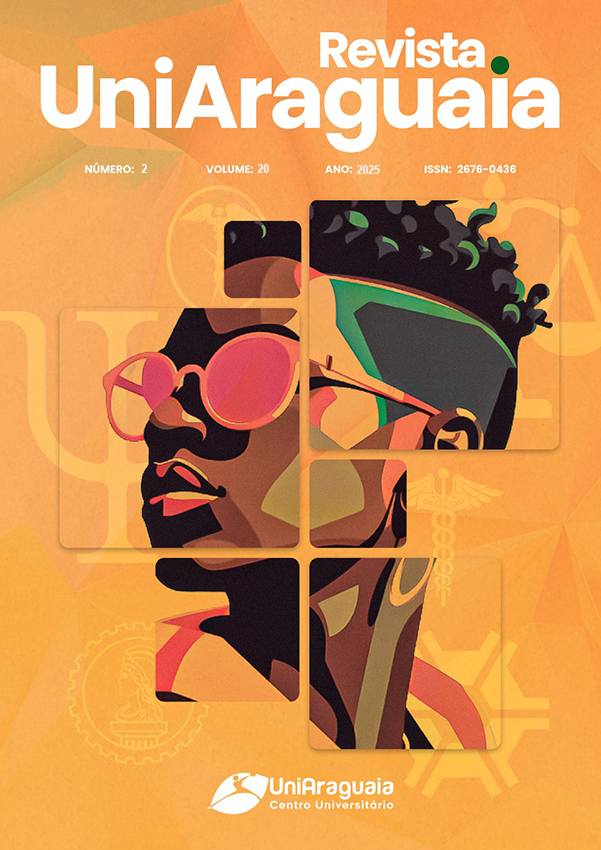FOSTERING URBAN SUSTAINABILITY IN THE AMAZON: ENVIRONMENTAL EDUCATION AND CIVIC ENGAGEMENT IN THE “CONSTRUINDO MAIS CIDADANIA” INITIATIVE (BELÉM, PARÁ, BRAZIL)
Keywords:
Civil Construction, non-formal education, environmental education, sustainability, urban afforestation, Amazon, SDGAbstract
This article presents an analysis of the “Sustainability and Participatory Citizenship” module, part of the “Building More Citizenship” project, promoted by Sinduscon PA between 2023 and 2025 at construction sites in the Belém Metropolitan Region. The initiative aims to integrate non-formal environmental education into the daily lives of construction workers, addressing topics such as waste management, conscious use of water, and urban afforestation. The activities included lectures, educational dynamics, and the symbolic planting of seedlings, with the aim of strengthening emotional and environmental bonds. More than 2,400 seedlings were planted and donated, with an estimated sequestration of 226.9 tons of CO₂ in 20 years. The project directly reached 7,563 participants and was well evaluated by workers, who reported greater environmental awareness and changes in habits. The action also aligns with the Sustainable Development Goals (SDGs), especially numbers 9, 11, 13 and 17, by promoting sustainable practices in the production sector through institutional partnerships. The study concludes that initiatives like this are effective in raising awareness in society about environmental issues and highlights the importance of continuing, expanding and institutionalizing these actions, especially in light of COP-30 in Belém.
References
BARBOSA, A. F. L. A Educação Ambiental na Amazônia: um Estudo sobre o Grupo Ambiental de Fortalezinha (GAF). 2020. 198 f. Dissertação (Mestrado em Educação) – Universidade do Estado do Pará, Belém, 2020.
BUORO, M. Estimativa do potencial de sequestro de carbono em Reserva Particular do Patrimônio Natural do Bioma Amazônia por meio de Redes Neurais Convolucionais. 2022. 52 f. Trabalho de conclusão de curso (MBA em Inteligência Artificial e Big Data) – Instituto de Ciências Matemáticas e de Computação, Universidade de São Paulo, São Carlos, 2022.
BRASIL. Lei nº 9.795 de 27 de abril de 1999. Dispõe sobre a Educação Ambiental, institui a Política Nacional de Educação Ambiental e dá outras providências. Brasília, DF: Presidência da República, 1999. Disponível em: https://www.planalto.gov.br/ccivil_03/leis/l9795.htm. Acesso em: 10 mar. 2025.
CARVALHO, I. C. M. Educação Ambiental: a formação do sujeito ecológico. 8. ed. São Paulo: Cortez, 2023.
COSTA, M. R. P.; SARAH, M. E. S. Porto Ambiental: educação ambiental e práticas sustentáveis na Amazônia paraense. Revista Caderno Pedagógico, Curitiba, v. 22, n. 5, p. 1-19, 2025. DOI: https://doi.org/10.54033/cadpedv22n5-094.
DIAS, R. A.; SILVA, M. V. (org.). Educação ambiental na Amazônia: saberes e práticas. Belém: UFPA, 2022.
DINIZ, I. C. et al. Impactos ambientais causados por resíduos de construção na cidade de Belém, “a metrópole da Amazônia”. Revista Educação Ambiental em Ação, Belém, v. 14, n. 54, 2015.
GANDOUR, C. Políticas Públicas para Proteção da Floresta Amazônica O que Funciona e Como Melhorar. Rio de Janeiro: Climate Policy Initiative, 2021. Disponível em: chrome-extension://efaidnbmnnnibpcajpcglclefindmkaj/https://www.climatepolicyinitiative.org/wp-content/uploads/2021/10/REL-AMZ2030-PT-Protecao-Florestal.pdf. Acesso em: 10 jun. 2025.
IBGE. Panorama censo 2022. Rio de Janeiro: IBGE, 2022. Disponível em: https://censo2022.ibge.gov.br/panorama/. Acesso em: 10 mar. 2025.
IBGE. PIB cresce 3,4% em 2024 e fecha o ano em R$ 11,7 trilhões. Rio de Janeiro: IBGE, 2024. Disponível em: https://agenciadenoticias.ibge.gov.br/agencia-sala-de-imprensa/2013-agencia-de-noticias/releases/42774-pib-cresce-3-4-em-2024-e-fecha-o-ano-em-r-11-7-trilhoes. Acesso em: 10 jun. 2025.
IPCC. Guidelines for National Greenhouse Gas Inventories: agriculture, forestry and other land use. Kanagawa: IPCC, 2006. v. 4. Disponível em: https://www.ipcc-nggip.iges.or.jp/public/2006gl/pdf/4_Volume4/V4_00_Cover.pdf. Acesso em: 10 mar. 2025.
PINTO, T. P. Metodologia para a gestão diferenciada dos resíduos da construção. 1999. 218 f. Tese (Doutorado em Engenharia) – Escola Politécnica, Universidade de São Paulo, São Paulo, 1999.
SANTOS, J. E. B.; ALMEIDA, A. C. G. Pedagogias da Floresta: educação ambiental e resistência na Amazônia. São Paulo: Cortez, 2021.
SILVA, G. C. Práticas de educação ambiental com a comunidade indígena Tembé / Tenetehara. 2019. 64 f. Trabalho de Conclusão de Curso (Bacharelado em Ciências Biológicas) – Universidade Federal Rural da Amazônia, Capitão Poço, 2019.
Downloads
Published
Issue
Section
License

This work is licensed under a Creative Commons Attribution 4.0 International License.
The copyright of the published articles will be transferred to the Uniaaraguaia Magazine, allowing its subsequent reproduction as transcription and with due citation of source. In the event of acceptance and before the publication of the article, the plaintiff (s) shall write a statement formally transferring copyright to the magazine.
The author may also print and distribute copies of his article, provided that he mentions that the rights belong to the Uniaaraguaia Magazine.
Author rights include the right to reproduce in full or partly by any means, distribute this article, including figures and photographs.
By submitting originals to the Uniaaraguaia magazine, the author or authors express agreement with the following terms:
a) Authors maintain copyright and grant Uniaraguaia magazine the right of first publication, with the work simultaneously licensed under the Creative Commons Attribution license that allows the sharing of work with recognition of the authorship and initial publication in this magazine.
b) Authors are authorized to assume additional contracts separately, for non-expiration distribution of the work version published in this magazine (eg publish in institutional repository or as book chapter), with recognition of authorship and initial publication in this journal.
c) Authors are allowed and are encouraged to publish and distribute their work online (eg in institutional repositories or on their personal page) to any point before or during the editorial process, as this can generate productive changes as well as increase the impact and citation of published work.

